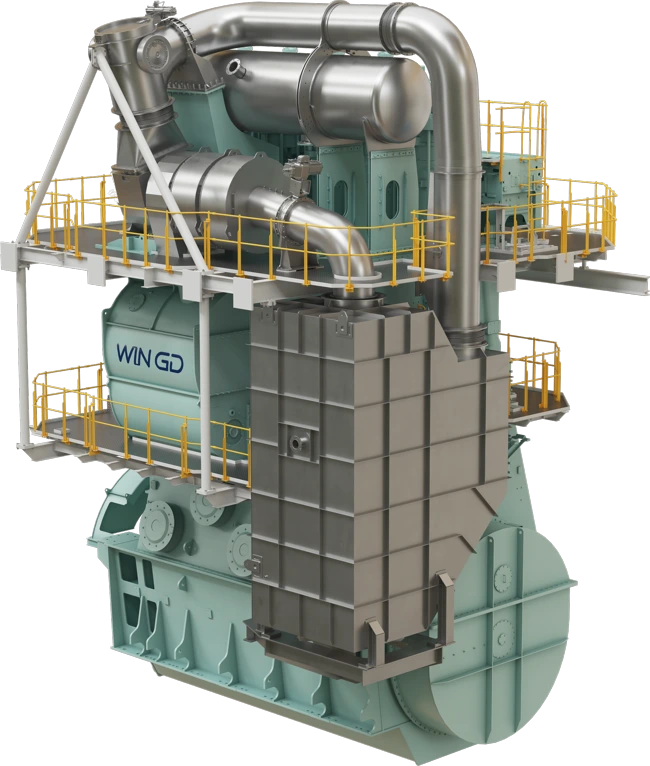WinGD introduces compact version of iCER exhaust recycling system
25 May 2022
Swiss marine power company WinGD has introduced an on-engine version of its Intelligent Control by Exhaust Recycling (iCER) system, enabling the emissions reduction technology to be installed without impact on engine footprint.
The iCER system has been developed to reduce methane slip emissions and fuel consumption from WinGD dual-fuel, low-speed two-stroke marine engines (X-DF2.0). The system is designed to cool and recirculate part of the exhaust gas through a low-pressure path. Compared to a high-pressure path, the main benefit is the ability to use the full turbocharger capacity.

The iCER system offers a reduction of energy consumption in gas mode by 3%, a reduction of fuel consumption in diesel mode by up to 5%, and a reduction of methane slip up to 50%. Combined with the better fuel efficiency, total GHG emissions can be reduced by up to 8% in gas mode and by up to 6% in diesel mode. By adjusting the EGR and controlling parameters such as fuel admission and ignition timing, the compression ratio can be increased [4828].
The on-engine iCER offers the same advantages, according to WinGD, while simplifying testing, building and installation of the engine, as well as reducing the engine room space needed for emissions reduction equipment. The exhaust gas cooler and all exhaust gas flow control components are installed on the engine, offering significant engine room design flexibility.
On-engine iCER is initially available on WinGD’s X72DF engines, typically used on LNG carriers. Minimizing methane slip on LNG carriers has an added benefit for operators using their cargo as fuel, allowing them to maximize the value of the LNG delivered. The technology will be rolled out to other models in the X-DF engine range.
Both on- and off-engine iCER systems enable compliance with IMO’s Tier III NOx limits, whether using LNG or diesel fuels.
Source: WinGD